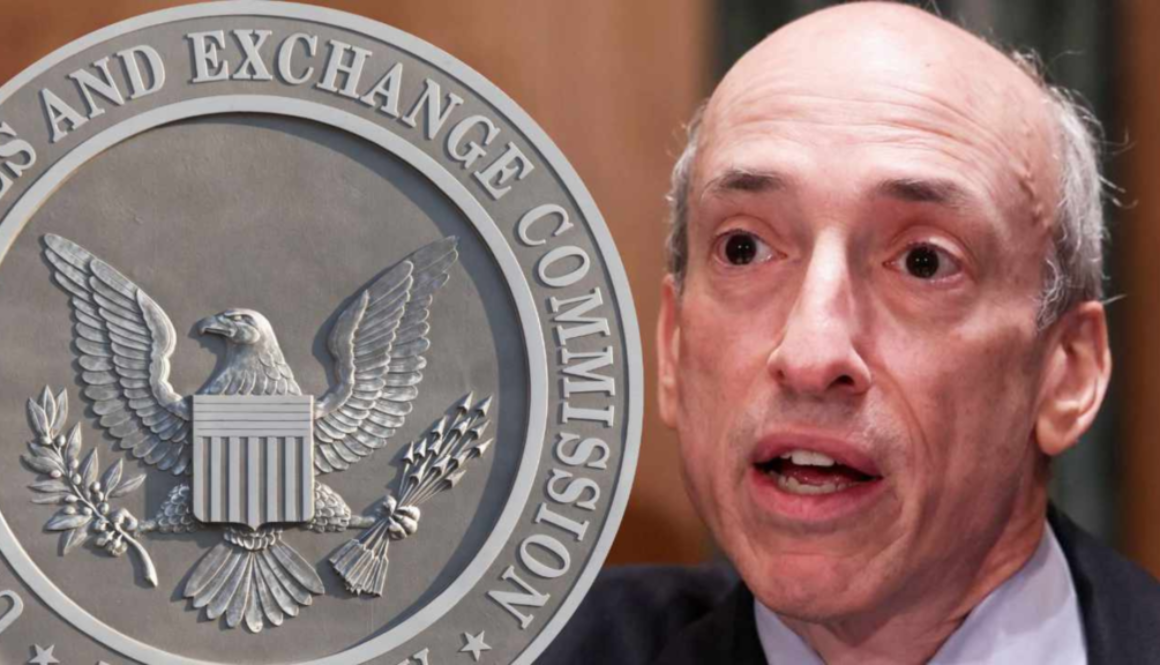Hong Kong regulators approve launch of spot bitcoin and ether ETFs on the 15 April 2024
Hong Kong’s growing interest in digital assets
Hong Kong regulators approved the launch of spot Bitcoin and Ether exchange-traded funds (ETFs) on Monday, 15 April 2024, according to asset managers. This follows U.S. moves earlier this year on the 10 January 2024, to bring these products to market.
Three ETF providers have been approved by Hong Kong’s Securities and Futures Commission (SFC). ChinaAMC announced that it had received regulatory approval for the provision of “virtual asset management services” and is “actively deploying resources in the development” of a spot Bitcoin and Ether ETF, with OSL Digital Securities acting as a custodian. Harvest Global and Bosera International have also received SFC approval for Bitcoin and Ether ETFs, the companies confirmed.
Hong Kong has been showing increasing interest in digital assets, making substantial efforts to establish itself as a global hub for this burgeoning sector. The city is actively promoting itself as a flourishing destination for digital assets, with the aim of boosting its appeal as a major financial centre.
One notable development in Hong Kong’s digital asset landscape is the approval of spot Bitcoin and Ether ETFs. This approval is significant as it invites mainstream investors to the digital asset market. By sanctioning the trading of Bitcoin and Ether through exchange-traded funds, Hong Kong offers investors a regulated and more accessible way to invest in these popular cryptocurrencies. This is expected to draw a wave of institutional and retail investors who were previously reluctant due to the unregulated nature of the digital asset space.
The approval of spot Bitcoin and Ether ETFs in Hong Kong could greatly influence mainland Chinese investors. Given the strict regulations and challenges surrounding digital assets in mainland China, investors from this region are likely to view Hong Kong as an attractive investment destination. The legitimacy and regulation offered by the Hong Kong market are likely to encourage more mainland Chinese investors to explore digital asset investments and potentially diversify their portfolios.
In conclusion, Hong Kong’s rising interest in digital assets, together with its efforts to promote itself as a global digital asset hub and enhance its status as a financial centre, demonstrate the city’s resolve to exploit the potential of this emerging sector. The approval of spot Bitcoin and Ether ETFs further boosts Hong Kong’s appeal to investors, particularly mainland Chinese investors seeking regulated routes into the digital asset market.
Increasing demand for virtual asset management services
The rising demand for virtual asset management services is fuelled by the swift expansion of digital assets and the need for effective management and storage solutions. As the world becomes more digitally interconnected, individuals and businesses are amassing a variety of virtual assets, such as cryptocurrencies, digital collectibles, and virtual real estate. These assets hold substantial value and necessitate secure and efficient management to ensure their long-term preservation and growth. Traditional methods of asset management and storage often fall short when dealing with virtual assets, leading to an increased demand for specialised services that cater to this emerging asset class’s unique needs. With the rapid progression of technology and the growing recognition of virtual assets as a valid form of investment, the demand for virtual asset management services is expected to continue its upward trend.
Bosera Asset Management and HashKey Capital
Bosera Asset Management and HashKey Capital are two notable companies within the financial sector. Established in 1998, Bosera Asset Management is a premier asset management firm based in China. They specialise in portfolio management and investment advisory services, offering an array of products such as stock funds, bond funds, and hybrid funds to both individual and institutional investors. Their commitment to delivering stable returns has earned them a reputation as a trusted name in the Chinese asset management industry.
Conversely, HashKey Capital is a digital asset management platform, launched in 2018, with a primary focus on cryptocurrency and blockchain investments. They provide customised investment solutions and comprehensive advisory services to those interested in digital assets. HashKey Capital has earned recognition for its blockchain expertise and dedication to innovation within the cryptocurrency sector.
While both Bosera Asset Management and HashKey Capital operate within distinct sectors, no public disclosure of a direct relationship or partnership between them exists. However, both companies have achieved significant individual accomplishments. Bosera Asset Management’s consistent performance and commitment to responsible investing have garnered them numerous awards and recognitions. Meanwhile, HashKey Capital has positioned itself as a significant player in the burgeoning field of digital asset management, forming strategic partnerships with industry leaders to promote growth and technological advancement.
Key players in the Chinese asset management industry
The Chinese asset management industry’s key players, including state-owned enterprises, private asset management firms, commercial banks, and insurance companies, are at the forefront of the country’s investment and financial activities. Notable state-owned enterprises such as China Asset Management Co. Ltd., Penghua Fund Management Co. Ltd., and China Universal Asset Management Co. Ltd. manage funds for government agencies and offer a broad range of investment products for retail and institutional investors. Private firms like Harvest Fund Management Co. Ltd. and China Southern Asset Management Co. Ltd. have become more prominent recently, offering diverse investment products like mutual funds and private equity funds. Commercial banks, including China Industrial and Commercial Bank (ICBC), Bank of China, and China Merchants Bank, provide asset management services and various financial products for their clients.
These key players are closely monitoring the potential Bitcoin and Ether ETFs in Hong Kong, considering their involvement in response to the growing popularity of cryptocurrencies in China. If these ETFs are approved, it could increase demand from Chinese investors, providing them with a more accessible and regulated way to invest in cryptocurrencies. This could attract a larger pool of Chinese investors, previously hesitant to invest directly in Bitcoin and Ether. Consequently, this could contribute to the maturity and growth of the Chinese asset management industry by diversifying investment options and attracting new investors.
In summary, these key players in the Chinese asset management industry are closely monitoring the potential Bitcoin and Ether ETFs in Hong Kong, recognizing the potential demand from Chinese investors and considering the implications of these developments on their investment strategies and product offerings.
Establishing a digital asset hub in Hong Kong
Hong Kong has strategically established itself as a leading digital asset hub by implementing various initiatives. The city has proactively attracted cryptocurrency investment and achieved significant milestones.
To become a digital asset hub, Hong Kong has adopted a comprehensive regulatory framework supporting innovative technologies like blockchain and digital currencies. The city provides a sandbox environment for companies to test new technologies while ensuring consumer protection. It has also introduced a licensing regime for cryptocurrency exchanges, ensuring market transparency and security.
Hong Kong has actively encouraged cryptocurrency investment by approving the listing of Bitcoin and Ether exchange-traded funds (ETFs), making it easier for investors to access these popular digital assets. The approval of these ETFs has attracted global attention, positioning Hong Kong as a pioneer in embracing digital currencies.
The Hong Kong government has further supported the digital asset ecosystem’s growth by fostering collaboration between regulators, industry players, and academic institutions. This has led to the creation of fintech innovation labs and research centres, stimulating technological advancements in the digital asset space.
In conclusion, Hong Kong has made significant strides in establishing itself as a digital asset hub. Its initiatives to attract cryptocurrency investment and the approval of Bitcoin and Ether ETFs have placed the city at the forefront of the digital asset revolution.
Compliance with regulatory framework
Compliance with the regulatory framework means an individual or an organisation adheres to rules and regulations set by governing bodies. This framework ensures businesses operate within legal boundaries and protects consumers from fraudulent or unethical practices. Non-compliance can lead to severe penalties and reputational damage. Businesses must understand their industry’s specific regulations and implement measures to ensure compliance. This involves staying current with regulatory changes, providing employee training, and conducting regular internal audits to spot potential non-compliance issues. By prioritising regulatory framework compliance, organisations can mitigate risks, maintain a strong reputation, and build trust with customers and stakeholders.
Initial approval granted to Harvest Fund Management
The initial approval granted to Harvest Fund Management marks a significant milestone in the launch of Hong Kong’s first Bitcoin and Ether spot ETFs. As the manager of these ETFs, Harvest Fund Management has received the go-ahead to introduce these investment products to the Hong Kong market.
This approval is pivotal for Harvest Fund Management, positioning them as one of the first firms to offer regulated Bitcoin and Ether exposure through ETFs. By attaining this initial approval, Harvest Fund Management is facilitating wider adoption of cryptocurrencies as legitimate, regulated investment assets.
The launch of Harvest Fund Management‘s Bitcoin and Ether spot ETFs is also significant in the context of the $12 billion net inflows into ETFs. With growing interest in cryptocurrencies and increasing demand for crypto-related investment products, this approval could greatly benefit Harvest Fund Management. Offering ETFs backed by Bitcoin and Ether allows them to tap into the massive inflows entering the ETF market.
Moreover, the approval of these ETFs lends credibility to the overall cryptocurrency market. It offers investors a regulated, transparent method to gain exposure to Bitcoin and Ether, potentially attracting more institutional and mainstream investors. This could result in further capital influx into the ETFs, potentially increasing their net inflows.
In conclusion, Harvest Fund Management’s initial approval is a significant step towards launching Hong Kong’s first Bitcoin and Ether spot ETFs. This approval positions Harvest Fund Management at the forefront of the cryptocurrency ETF market and could attract substantial net inflows due to the growing interest in cryptocurrencies as investment assets.
Role of financial institutions in obtaining regulatory approval
Financial institutions play a key role in securing regulatory approval for Bitcoin and Ether ETFs in Hong Kong. As intermediaries, they navigate the complex regulatory landscape to ensure compliance with licensing frameworks and regulations.
To gain approval, these institutions work closely with regulators, addressing concerns and providing necessary information for evaluation. They actively engage in consultations to understand and meet the requirements for Bitcoin and Ether ETFs. This collaboration helps regulators trust the institution’s ability to responsibly launch and operate these ETFs.
During this process, financial institutions have several key tasks. A primary one is conducting thorough due diligence on the underlying assets, like Bitcoin and Ether, to ensure they meet the listing standards for ETFs. This involves assessing factors such as liquidity, market integrity, custody arrangements, and risk management protocols.
These institutions also need to show their ability to meet regulatory requirements, such as anti-money laundering and know-your-customer obligations. They must develop strong compliance frameworks and implement suitable measures to prevent illicit activities and ensure investor protection.
Furthermore, they play a vital role in educating investors about the risks associated with Bitcoin and Ether ETFs. They are required to provide clear and transparent information, highlighting factors like price volatility and the speculative nature of these assets. This helps investors make informed decisions and understand the potential risks and rewards.
In conclusion, financial institutions are pivotal in securing regulatory approval for Bitcoin and Ether ETFs in Hong Kong. They collaborate with regulators, fulfill their responsibilities, and ensure compliance with licensing frameworks and relevant regulations to provide secure and regulated investment opportunities for investors.


